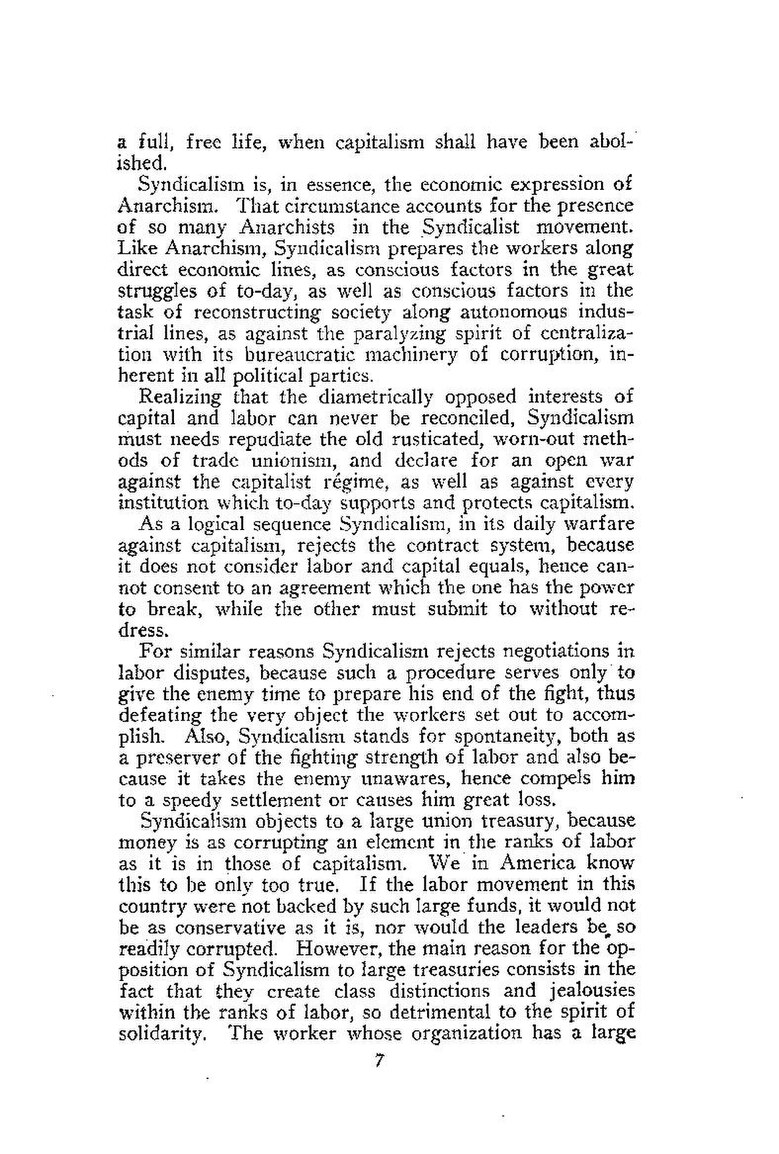a full, free life, when capitalism shall have been abolished.
Syndicalism is, in essence, the economic expression of Anarchism. That circumstance accounts for the presence of so many Anarchists in the Syndicalist movement. Like Anarchism, Syndicalism prepares the workers along direct economic lines, as conscious factors in the great struggles of to-day, as well as conscious factors in the task of reconstructing society along autonomous industrial lines, as against the paralyzing spirit of centralization with its bureaucratic machinery of corruption, inherent in all political parties.
Realizing that the diametrically opposed interests of capital and labor can never be reconciled, Syndicalism must needs repudiate the old rusticated, worn-out methods of trade unionism, and declare for an open war against the capitalist régime, as well as against every institution which to-day supports and protects capitalism.
As a logical sequence Syndicalism, in its daily warfare against capitalism, rejects the contract system, because it does not consider labor and capital equals, hence cannot consent to an agreement which the one has the power to break, while the other must submit to without redress.
For similar reasons Syndicalism rejects negotiations in labor disputes, because such a procedure serves only to give the enemy time to prepare his end of the fight, thus defeating the very object the workers set out to accomplish. Also, Syndicalism stands for spontaneity, both as a preserver of the fighting strength of labor and also because it takes the enemy unawares, hence compels him to a speedy settlement or causes him great loss.
Syndicalism objects to a large union treasury, because money is as corrupting an element in the ranks of labor as it is in those of capitalism. We in America know this to be only too true. If the labor movement in this country were not backed by such large funds, it would not be as conservative as it is, nor would the leaders be so readily corrupted. However, the main reason for the opposition of Syndicalism to large treasuries consists in the fact that they create class distinctions and jealousies within the ranks of labor, so detrimental to the spirit of solidarity. The worker whose organization has a large
7
